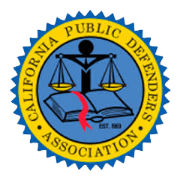
Table of Contents:
- Navigating Federal Indictments and Investigations
- What is a Federal Investigation?
- Understanding Federal Indictments
- Types of Charges in a Federal Indictment
- Triggers for Federal Investigations
- How Long Can an Investigation Last?
- What Happens If You’re Under Investigation?
- What Happens After an Indictment?
- The Role of a Criminal Defense Lawyer
- FAQs About Federal Indictments and Investigations
- Conclusion
Navigating Federal Indictments and Investigations
A federal indictment or investigation is a serious legal matter with potentially life-altering consequences. Understanding the intricacies of these processes is crucial for anyone facing such a situation. This article provides a clear and concise explanation of federal indictments and investigations, empowering individuals to navigate these challenges effectively.
What is a Federal Investigation?
A federal investigation occurs when a government organization like the FBI, DEA, or ATF investigates potential violations of federal law. These investigations, often involving multiple agencies, rely on criminal investigators to gather evidence, similar to piecing together a puzzle.
Investigators, working in conjunction with prosecutors, utilize various forms of evidence to build a case. Two primary types of evidence include direct evidence and circumstantial evidence.
Direct Evidence
Direct evidence is clear-cut evidence, such as eyewitness testimony or a confession. For example, in a bank robbery, a witness directly identifying the robber would constitute direct evidence because it directly links the suspect to the crime.
Circumstantial Evidence
Circumstantial evidence, unlike direct evidence, requires drawing inferences to connect the dots. An example of circumstantial evidence is finding fingerprints at a crime scene, which, while not directly proving guilt, places the individual at the scene and strengthens the case against them.
Understanding Federal Indictments
An indictment is a formal accusation issued by a grand jury, a group of 16 to 23 citizens. During grand jury proceedings, a prosecutor presents evidence to convince the grand jury that probable cause exists to believe a crime has occurred and the accused individual is involved. These proceedings are confidential, with all information shared within the grand jury room remaining private.
An indictment is a serious matter but is not a guilty verdict. Rather, it signifies the initiation of formal legal proceedings. It serves as a summons to court, and while serious, prosecutors generally pursue an indictment only when they believe a conviction is attainable.
Types of Charges in a Federal Indictment
Federal indictments may contain multiple charges, known as “counts.” Each count represents a separate alleged violation, each carrying its own potential penalties.
Examples of Federal Indictment Charges
The United States Code, a comprehensive compilation of federal laws, outlines numerous statutes under which someone can be indicted. Federal indictments often involve complex legal issues, underscoring the need for legal expertise.
- Racketeer Influenced and Corrupt Organizations Act (RICO): RICO charges target individuals involved in ongoing criminal enterprises, such as organized crime syndicates or drug cartels.
- Forgery: Forgery involves creating or altering documents with the intent to deceive. Examples include forging signatures on checks or creating fake identification documents.
- Espionage Act: Violations of the Espionage Act involve the unlawful obtaining, transmitting, or disclosing of national defense information, posing a significant threat to national security.
- New York Penal Law § 175.10: This statute specifically addresses the act of offering false instruments for filing.
- False Statements: Making untrue statements to federal agents, particularly during an investigation, can result in charges related to false statements.
Triggers for Federal Investigations
Federal investigations do not commence arbitrarily. Instead, certain triggers typically prompt these investigations, such as whistleblowers, suspicious financial activity, or alleged violations of federal law.
Common Triggers
Several common triggers can initiate federal investigations, including:
- Whistleblowers: Individuals, often employees or associates, who report illegal activities within an organization.
- Suspicious Financial Transactions: Banks and financial institutions are legally required to report suspicious transactions, often related to money laundering or other financial crimes.
- Cybercrime: As technology advances, cybercrime has become a significant concern. Federal agencies actively investigate cybercrime offenses, such as hacking, data breaches, and online fraud.
How Long Can an Investigation Last?
The duration of a federal investigation varies significantly. Some investigations conclude within months, while others can span several years. The crime’s complexity, the number of individuals involved, and the availability of resources are among the factors that influence the timeline of an investigation.
What Happens If You’re Under Investigation?
Discovering you are under federal investigation can be an unnerving experience. While your initial instinct might be to contact authorities and attempt to clear your name, seeking legal counsel is crucial. Receiving a target letter from the government is a strong indication they are considering filing an indictment.
What Happens After an Indictment?
If a grand jury issues an indictment, you will be scheduled for an arraignment, your initial court appearance. During the arraignment, the court will formally read the charges against you. You can then enter a plea. The legal process continues with pre-trial motions, discovery, and potentially a trial.
The Role of a Criminal Defense Lawyer
Navigating the complexities of a federal investigation or indictment requires the expertise of a skilled criminal defense attorney specializing in federal law. A knowledgeable attorney is essential to protect your rights and build a robust defense.
They will thoroughly examine the indictment, searching for legal flaws, and scrutinize the evidence presented by the government. Your attorney will also explore potential defenses based on the specific facts of your case, working to mitigate potential penalties.
FAQs About Federal Indictments and Investigations
Individuals often have numerous questions about federal indictments and investigations. Here are some frequently asked questions and their corresponding answers:
How Serious Is a Federal Indictment?
A federal indictment is a very serious legal matter, indicating the government believes it possesses substantial evidence against you. The potential consequences are severe, often involving significant fines, imprisonment, and a lasting criminal record.
How Do You Know If the Feds Are Investigating You?
Federal investigations are often conducted discreetly, making it challenging to determine if you are under investigation. However, some signs may include: receiving a target letter or subpoena from a grand jury, witnessing unusual law enforcement activity around your home or workplace, or being contacted by individuals who have been questioned as part of an investigation.
How Long Can the Feds Investigate You?
The statute of limitations for most federal offenses is five years. However, there are exceptions and specific circumstances that allow the government to extend this timeframe. Consulting with an attorney is vital to understand the applicable statute of limitations in a specific case, as well as potential factors that could affect it.
What Triggers a Federal Investigation?
Various actions can trigger a federal investigation. These include: reports of criminal activity from individuals, businesses, or government agencies; suspicious financial transactions flagged by financial institutions; or the discovery of evidence suggesting potential criminal violations. In some instances, state-level offenses with potential national implications can be referred to federal authorities, leading to a federal investigation.
Conclusion
Federal indictments and investigations are formidable legal proceedings with lasting consequences. Awareness of potential triggers and the implications of being indicted is paramount. Facing a federal investigation is a daunting task, often leading individuals to feel overwhelmed and uncertain about their rights and options. If you find yourself the subject of a federal investigation, seeking legal counsel is essential. Don’t attempt to navigate the complexities of federal law alone. Retaining an experienced criminal defense attorney can make all the difference in protecting your rights and achieving the best possible outcome.





